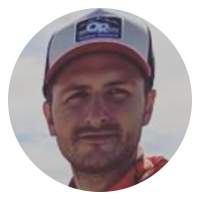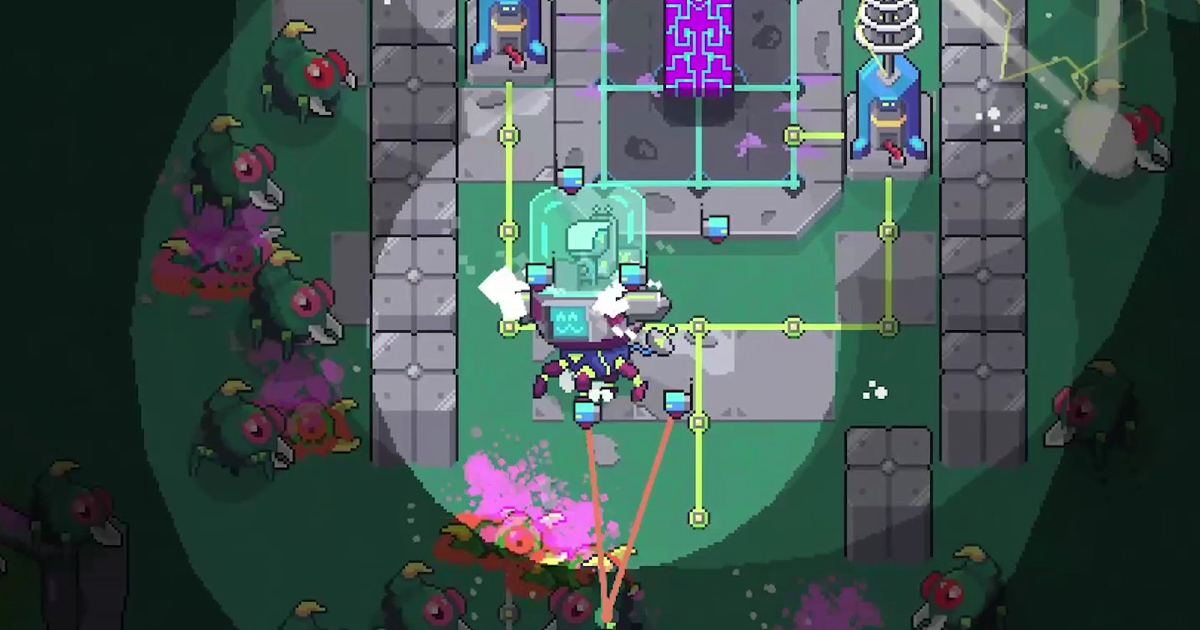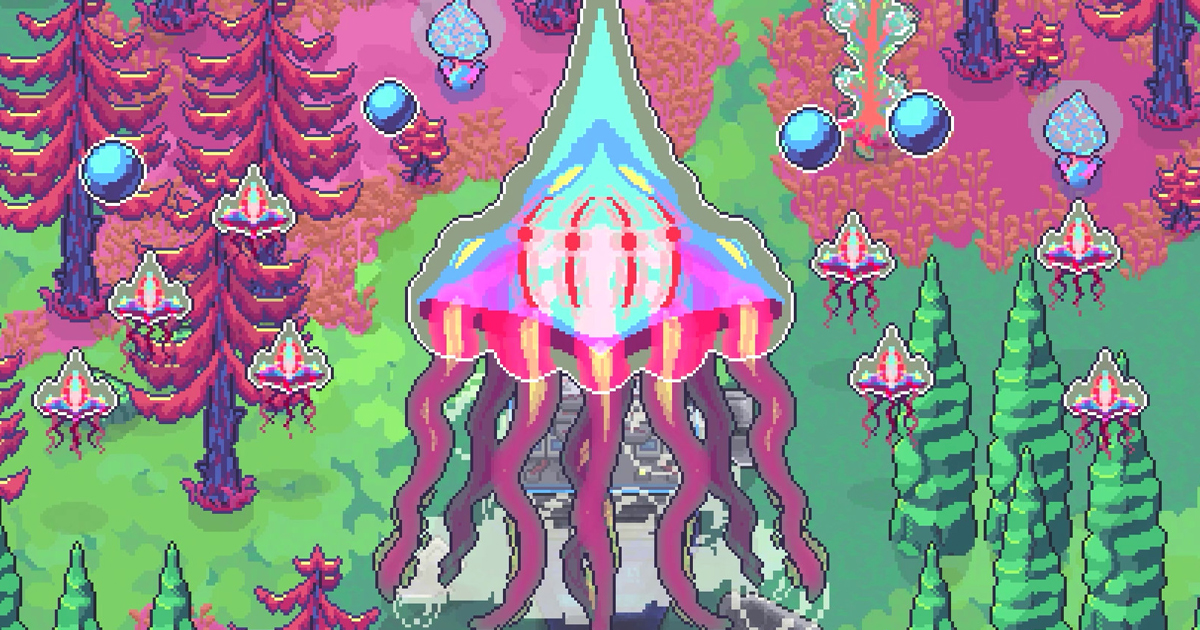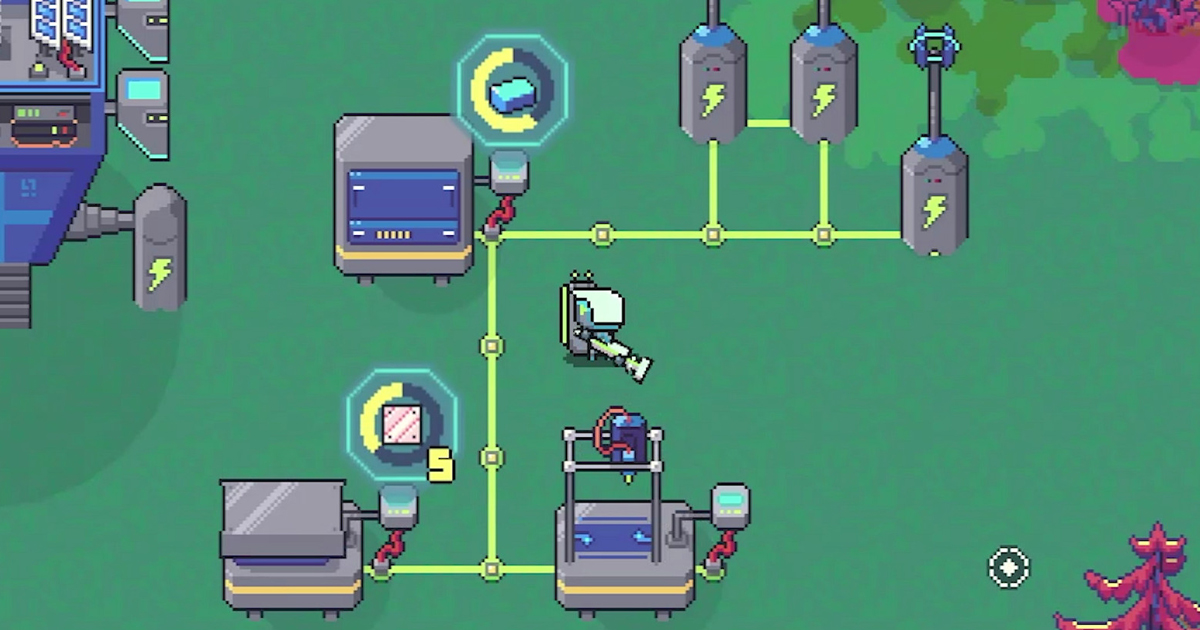Jacob Farny, founder of one-man studio Loonworks Games, has opened up about his sci-fi simulation / base-building game Prospector. We discussed his love for the genre, the challenges of solo development, and his desire to create stress-free experiences that allow players to author their own story.
Quitting a day job to create his own game
Coming from the UX field, Jacob spent a decade designing things for web and mobile apps. With game development being a different area, he had to learn a lot of its aspects from scratch. So it wasn’t an easy ride at all.
“I really had no intention of taking on a project like this, it just sort of happened slowly over time,” he recalls of the beginning of his gamedev journey, which led him to Prospector.
Farny made some prototypes back in 2018 using GameMaker. That’s when he wrote the first lines of code, wanting to create a 2D platformer. But like many other aspiring devs, he eventually abandoned the project, becoming apathetic to it: “I still enjoy a good platformer, but I came to the realization that platformers aren’t the type of games I’m interested in making.”
I don’t have a background in computer science or game design or anything, so that first year was very humbling but there was a point probably in late 2019 where I wasn’t constantly watching tutorials to figure out how to do something. That was a pretty amazing feeling and I started to allow myself to dream a bit bigger. founder of Loonworks
Luckily, Farny didn’t give up on game development after the first attempts. The main shift happened during the pandemic when he decided to take a more serious approach and finally turn his ideas into a commercial game.
“I was working almost fully remotely at the time anyways and working on my game felt like a good way to keep myself above water mentally, so I just decided it was time to quit the day job and do this gamedev thing full time for a bit,” Farny says.
Right now, he is working on Prospector, a project he describes as an exploration, simulation game in a sci-fi setting with base-building and crafting elements.
Giving players a blank canvas to paint their own picture on
Being a fan of simulation and building games, Farny is also an advocate for a more casual approach. With Prospector, he wants to make a complex game that is still “easy to pick up and put down.”
I think nowadays there are so many options for how to spend your free time and I don’t want people to stress about my game as being another thing they would have to start and find time to finish. I myself am very time poor, so I try to design experiences that have a low barrier to entry but still require some thinking while providing the player with opportunities to author their own story. founder of Loonworks
Despite growing up on PC games in the late 90s, Farny has been a console gamer for years. “It wasn’t until my friend helped me build a computer in 2019 that I saw how vibrant the indie scene for PC gaming was,” he recalls. “That’s when I started playing a lot of these kinds of simulation games for the first time.”
Astroneer and Forager, two indie hits in the open-world survival / crafting genre, became Farny’s biggest inspiration for Prospector. So he decided to put his own spin on the ideas behind these two games: “I’m trying to borrow exploration ideas from Astroneer while designing more straightforward progression goals like the ones in Forager.”
Your robot friend got some new legs 🦿🦿🦿🦿#pixelart #pixelartist #gamedev #indiedev #indiegame #screenshotsaturday pic.twitter.com/8E8zkjNjuU
— Loonworks (@LoonworksGames) July 23, 2022
“My goal is to strike a balance between those two experiences, which I think will result in something unique for fans of either game,” he explains.
Speaking of the genre in general, Farny notes that he loves to figure out how multiple systems and mechanics can work together to create a unique experience. That’s what he thinks makes survival and crafting titles shine.
For the most part, they are not precision games. It’s more like a blank canvas and you get to scribble whatever you want on it. The game’s various systems operate by a fixed set of rules and the player has to learn those rules and then plan accordingly. It’s a really rewarding experience for a lot of people, myself included. founder of Loonworks
The game’s plot was heavily inspired by a 2018 sci-fi movie called Prospect, which many praised for its world-building. It tells the story of a teenage girl and her father, who mine gems in a poisonous forest growing on an alien moon.
“I love sci-fi experiences that are a bit grungy where the narrative focuses on everyday life instead of a hero’s journey,” Farny says. “I saw that movie and thought, yeah, a space age gold rush is an interesting narrative where things are somewhat fantastical in setting but still grounded in an approachable narrative.”
Building processes and learning to work without a team
Farny is creating Prospector solo, doing all the code, game design, and pixel art. He does the majority of his work in GameMaker Studio 2 and Aseprite, while using free sound libraries for sound effects and music.
Farny says that he decided to focus on 2D pixel art from the start, so the choice of the engine was pretty obvious. “I really love GameMaker because it’s fast and reliable,” Farny notes. “It’s also primarily designed for 2D projects so I don’t have all those other 3D things getting in the way.”
It’s not that I’m incapable of seeing a future where I’d work on a 3D project, or try a different 2D style, it’s just that there’s only so many hours in a day and the learning curve gets really steep for some of these tools. I like pixel art for the same reason that a lot of other devs do. It has a very low barrier to entry but a very high skill cap, and once you get the hang of it and develop a style, you can make art pretty quickly. founder of Loonworks
Learning all these tools by himself wasn’t easy. Farny says he gets a lot of coding help online, giving a big shoutout to the GameMaker community on Discord: “There are truly some selfless individuals over there that are constantly helping people with their projects. It’s gotten to the point where some of them are definitely going in my game credits.”
But not having teammates has been the biggest challenge so far, Farny says. He realizes that development would have gone faster if he had someone else helping him with Prospector. The solo approach, on the other hand, has its advantages, allowing him to come and go from the project at any time.
Prototyping puzzles. Sound on 🔊#gamedev #indiedev #GameMaker #screenshotsaturday #pixelart #pixelartist pic.twitter.com/NuOfwlyXQg
— Loonworks (@LoonworksGames) July 16, 2022
“I enjoy the freedom in that and it’s not something I take for granted,” Farny notes. “I’ve spent my entire professional career working on small teams and I could easily see myself going back to that mode making a game but for whatever reason I’m just not interested in working with a team on Prospector. Who knows what the future will bring, but for now I’m very happy going it alone.”
When it comes to managing his own work, Farny prefers the Kanban method because it gives him flexibility without a lot of overhead. “I do borrow some concepts from agile development like retrospectives where I reflect on the work I’ve done typically at the end of every week,” he adds. “Those are really important because otherwise I just keep working and working and very pick my head up to make sure I’m still moving in the right direction.”
As a solo developer who’s never released a commercial game before, there’s a lot of stuff I still don’t know, and it gets pretty hard to estimate how long certain tasks will take. It can be really disheartening to plan to work on something for a week, but it turns out to be a month. founder of Loonworks
Managing the time to prevent burnout
Game development and burnout are two things that are, unfortunately, inseparable from each other. It is not only about physical or emotional exhaustion, but also the risk of completely losing passion and interest in creating games.
After quitting his day job in 2020, Farny worked on Prospector full time for almost six months. “It was a blast and a completely unsustainable pace,” he recalls. “I burned out and couldn’t work on the project for months. I couldn’t even look at it and told people I wasn’t going back to Prospector.”
Farny thinks that burnout is the number one challenge for any long-term project: “It’s so incredibly hard to get motivation and confidence back once it’s gone.”
I think being realistic about what I can do with the time that I have is a constant struggle in my mind. There’s the big pie-in-the-sky dream of a game I want to make, and then there’s the time and ability I have. It’s good to reach for those proverbial stars, but I need to remember to look down at my feet every once and awhile. founder of Loonworks
There is still no single solution that can help you cope with this feeling. What worked for Farny was that he took a break and got a few UX contracts while trying to learn how to draw traditionally, focusing on character design.
“Eventually my inspiration returned and I am working on Prospector again but my relationship to the project has changed immensely,” he says. “That was a real rough patch, but my wife helped me through it and I can honestly say I have a very healthy relationship with Prospector these days. It’s fun to work on again but it feels way less precious to me.”
This helped Farny learn how to manage his time and work hours to prevent future burnout. The goal is to not get his life completely absorbed by the game, so he tries to not work on weekends anymore and have other projects and activities.
***
Right now, Farny continues to move solo, not planning to seek additional funding for the game. However, he might need some help in the future.
“I want to collaborate with artists for illustration and marketing materials and I also need help with music and sound effects,” he says. “QA testing too. Maybe once I get past an Alpha release I’ll think about my needs more seriously.”
Prospector is expected to come out in 2023, so Farny still has a lot of work left to do. We’ll see what the next chapter of this indie journey holds.




